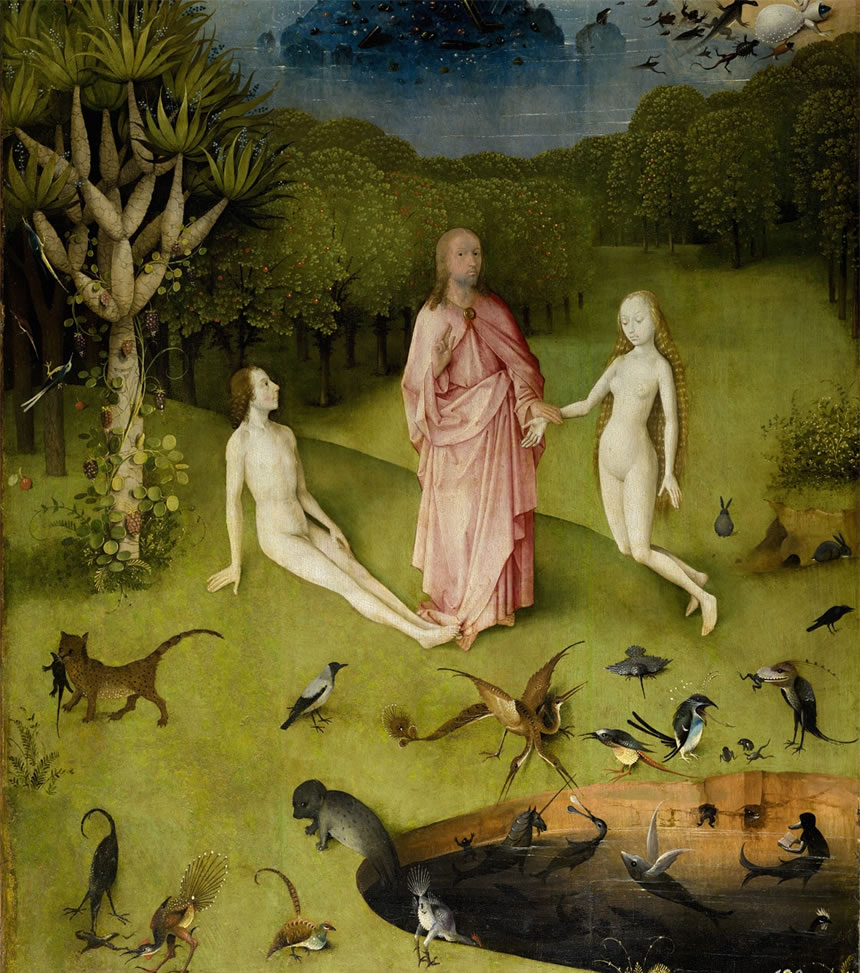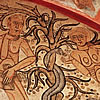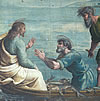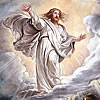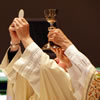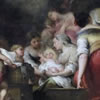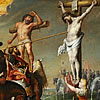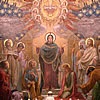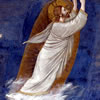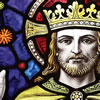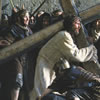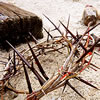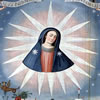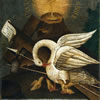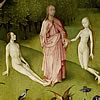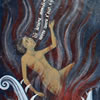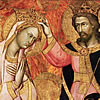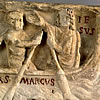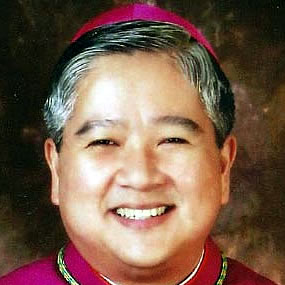Seven lessons from the Garden of Eden
We can glean so many insights when we understand the events in the Garden of Eden in their proper perspective. First and foremost we have to remember that the bible is the inspired word of God written by humans using their own words. The bible is made up of many books, and one book may have a different genre than another. Having said that, Genesis is a mythical genre. It is a myth not in the sense that it isn’t true; instead, it is a myth in the sense that it uses symbolism and allegories to help us understand something that is difficult to explain. (Ralph, Nutting. And God Said What?) The first part of Genesis, therefore, is a way to help us understand where we came from, and why we have a fallen nature. In this article we will discuss seven ideas we can pick up from understanding the events in Eden.
1. God’s spirit is the source of life
then the LORD God formed the man out of the dust of the ground and blew into his nostrils the breath of life, and the man became a living being.
Genesis 2:7
The imagery of this verse likens God to a potter who creates man out of the earth. In fact, there is a play on words here because in Hebrew adam means “man”, and in adama means “ground.” Since non-living material things can result only to other non-living material things, man would not be a living being unless life were infused into him. It is the “blowing of life” into man’s nostrils that causes man to be alive. Yet again, there is this play of words because spirit means “breath”, and the breath of God would necessarily mean it is a holy spirit.
We read the same blowing of the Holy Spirit in the New Testament where we read of Christ blowing “new life” into the ministry of the Apostles.
And when he had said this, he breathed on them and said to them, ‘Receive the holy Spirit...’
John 20:22
We also read a culmination of this on Pentecost day:
When the time for Pentecost was fulfilled, they were all in one place together. And suddenly there came from the sky a noise like a strong driving wind, and it filled the entire house in which they were. Then there appeared to them tongues as of fire, which parted and came to rest on each one of them. And they were all filled with the holy Spirit and began to speak in different tongues, as the Spirit enabled them to proclaim.
Acts 2:1-4
In this passage, we read of a large wind blowing down on the Church represented by the apostles and the disciples that were with them. If we juxtapose chapter 1 and 2 of Acts (and we know there were no chapters in the original bible) then we can infer that with them were relatives of Jesus (his “brothers”) and some women including “Mary the mother of Jesus.” (Acts 1:14).
When Christ said “I am the vine, you are the branches” (John 15:5) the Apostles understood that he and his Church are inseparable – thus he is the head of the Church, and the Church is his mystical body. Just as a body cannot continue to exist without the head, the Church cannot exist without it being connected to Jesus.
Pentecost is important because just as Adam was lifeless until God blew his breath on him, this mystical body would remain lifeless until God blew his breath on it. It is the Holy Spirit that is the “soul” of the Church. And for that reason, the Church is Holy for it is the Holy Spirit that animates her.
2. It delights God that man helps him
When the LORD God made the earth and the heavens there was no field shrub on earth and no grass of the field had sprouted, for the LORD God had sent no rain upon the earth and there was no man to till the ground...
The LORD God planted a garden in Eden, in the east, and placed there the man whom he had formed.
The LORD God then took the man and settled him in the garden of Eden, to cultivate and care for it.
Genesis 2:5,8,15
From the agricultural allegory in these three verses, we can understand that the purpose of man in relation to creation is that he is to nurture it and make it grow. Nature is supposed to be harnessed, not exploited. It must be used in a sustainable way for all generations until the end of time.
We see from this that God has made mankind his helper tending for creation. God could have done it on his own for he is all powerful, but by allowing it, it must mean it delights him to have mankind helping out.
Many generations later, the same reasoning can be said for Christ’s Church. Jesus instituted his Church to perpetuate his presence. The Church has sacraments to forgive and heal the same way he did while he was alive. The Church has the Eucharist that makes Christ sacramentally present to us the way he was physically present when he was alive. Christ could have just remained on Earth after he resurrected until the end of time, but he did not. That can only mean he delights in his Church, composed of men and women, in helping build his Kingdom – regardless of their limited capacity.
We should not be surprised, therefore, that the Vicar of Christ, Pope Francis, would write an encyclical (Laudato Si) that urges us to care for our “common home.”
3. Inseparability of bridegroom and bride, Christ and his Church
So the LORD God cast a deep sleep on the man, and while he was asleep, he took out one of his ribs and closed up its place with flesh. The LORD God then built the rib that he had taken from the man into a woman. When he brought her to the man, the man said:
‘This one, at last, is bone of my bones
and flesh of my flesh;
This one shall be called “woman,”
for out of man this one has been taken.’That is why a man leaves his father and mother and clings to his wife, and the two of them become one body. The man and his wife were both naked, yet they felt no shame.
Genesis 2:21-25
In these verses we get the idea that Adam and Eve, as husband and bride, are “one flesh”; in fact, the language used is that they are “one body.” The oneness is so perfect that even clothing doesn’t separate them.
Here we understand why marriage and family are safeguarded by the Church. It was God’s intention for it to be this way from the beginning. God has been revealing himself as the bridegroom while his chosen people, Israel, is his bride. Christ also made many references to him being a bridegroom (one is Matthew 9:15). So if Christ is a bridegroom, who then is his bride? The Church, of course.
When the side of the dead Christ was pierced by a spear it is parallel to Adam in a “deep sleep.” It is quite apt because the death of Christ, who resurrected three days later, can be described as a deep sleep. And the parallel continues that Eve, the bride of Adam, who came out of Adam’s side; so did the Church, the “Bride of Christ came out of Christ’s side.” This metaphor of Christ and his bride reinforces the idea that Christ and his Church are inseparable: they are “one body.”
4. Human nature is perfected by grace
Out of the ground the LORD God made grow every tree that was delightful to look at and good for food, with the tree of life in the middle of the garden and the tree of the knowledge of good and evil.
The LORD God gave the man this order: You are free to eat from any of the trees of the garden except the tree of knowledge of good and evil. From that tree you shall not eat; when you eat from it you shall die.
Genesis 2:9,16-17
There were no restrictions on eating from the Tree of Life. If fact if we read further on in Genesis we understand that eating from the Tree of Life gives eternal life. (Genesis 3:22) Everlasting life did not belong to our human nature but God was giving it to us free for as long as we accepted it.
If we had accepted it man would live with God forever, body and soul. And that was the original design of man – that his soul would not be separated from him forever. This could only mean that God was willing to give us another gift for that to happen – the immortality of the body. This gift would allow our body to live forever without undergoing disease and corruption. In short, our immortal souls were designed to be united forever with a body made immortal by grace.
This was the original plan of God, and he would see to it that that’s how it would end. For in the New Testament, it is Christ who is the Tree of Life, and when we eat his fruit (The Eucharist) we live forever. In fact, we believe that at the End of Time our body will resurrect and be reunited with our souls so we can live with God forever with both body and soul as originally designed.
5. Engaging in conversation with the Devil will most likely lead to sin
Now the snake was the most cunning of all the wild animals that the LORD God had made. He asked the woman, “Did God really say, ‘You shall not eat from any of the trees in the garden’?”
The woman answered the snake: “We may eat of the fruit of the trees in the garden; it is only about the fruit of the tree in the middle of the garden that God said, ‘You shall not eat it or even touch it, or else you will die.’”
But the snake said to the woman: “You certainly will not die! God knows well that when you eat of it your eyes will be opened and you will be like gods, who know good and evil.”
The woman saw that the tree was good for food and pleasing to the eyes, and the tree was desirable for gaining wisdom. So she took some of its fruit and ate it; and she also gave some to her husband, who was with her, and he ate it.
Then the eyes of both of them were opened, and they knew that they were naked; so they sewed fig leaves together and made loincloths for themselves.
Genesis 3:1-7
Determining what is good or what is bad for us, (the metaphor of the Tree of Knowledge of Good and Evil) is something that does not belong to our nature, and God was not giving that to us. It is his prerogative and his alone for he is all-knowing. We cannot presume to know what is good and evil with our finite minds. To determine what is good and evil, therefore, is usurping God’s role: we make ourselves god. But there is only one God and to make ourselves God is blasphemous. It is idolatry. Every sin is the same: we do not listen to God’s commandments and we make ourselves our own god by determining what is good or bad for us. But how did Adam and Eve fall into this trap?
The tactic of the devil is clear from his opening attack: create doubt. “Did he really say...” caught the attention of Eve and her mistake was to entertain the invitation to a conversation. By answering the question, she unwittingly opened herself to a dialogue with the devil. We have to remember that the intellect of the devil is far superior to ours and, therefore, we have very little chance in coming out of it unscathed.
When we are tempted, we enter into the same dialogue with ourselves trying to justify the act we are about to commit. Most of the time we also fall into that trap the way things are inescapably sucked into a black hole. The only way, it seems, to not fall into sin is to ignore the conversation with temptation altogether. Shifting our thoughts to something else is best. And since we have a fallen nature we need God’s grace too, so asking for help is recommended. We have a guardian angel assigned to each of us, and what better person to ask help from.
6. God is the master of history
Then the LORD God said to the snake: Because you have done this, cursed are you among all the animals, tame or wild; On your belly you shall crawl, and dust you shall eat all the days of your life.
I will put enmity between you and the woman, and between your offspring and hers;
Genesis 3:14-15
They will strike at your head, while you strike at their heel.
Blessed Archbishop Fulton Sheen said it best: the only way God can fix a discordant note is by using that note as the first one in a new opus. This is exactly what God did. When man fell from grace, (a term used to describe mankind losing all the gifts God gave him as a result of choosing to separate themselves) he had no way of repairing the act he had committed. Man was given sanctifying grace – a gift that allowed him to share in God’s divinity. When he lost that, he no longer shared the infinite nature of God; and because God is infinite, only an act of infinite reparation is suitable. Without this shared divine nature, mankind could only make finite action of reparation. That isn’t enough. Mankind was doomed.
God could have just reset the universe and start all over again. He could have just forgiven Adam and Eve and continued as normal. But, as Archbishop Fulton Sheen explains, the discordant note of disobedience will go on forever unless it is fixed. And the way God chose to “fix” it was to create a new plan based on that sour note. So it does seem poetic that Mary, a virgin woman who listened to a good angel (Gabriel) and obeyed God is the musical counterpoint of Eve, a virgin who listened to a bad angel and disobeyed God. Likewise, it is poetic that Jesus conquered temptation in the Garden of Gethsamene and obeyed God to die on the wood of the cross, and receive everlasting life (resurrection) in a Garden. It is the counterpoint of Adam who ate from a tree made of wood, both disobeyed God and lost everlasting life in a garden. Mary and Jesus are the promised mother and offspring that tramples on the head of the enemy. By doing this, they restore the original plan of God where man is united with God as he was originally been designed for.
We can, therefore, look at Genesis and Revelation as “bookends” of the Bible. In Genesis we see God walking with mankind in the Garden of Eden, and in the Book of Revelation we can read God as a bridegroom coming to walk with his bride – a new Jerusalem – a perfected city of man much like a “new Eden” with the Tree of Life at its center. (Revelation 22)
As we read the different lessons above, whatever original design of God that was thwarted by man’s fall is restored. It doesn’t seem this happens by some weird coincidence, but by some master planner.
7. The Holy Spirit is the author of Scripture
Genesis was believed to have been written sometime around 1400 B.C. while the Gospels and Revelation around 70 A.D. There are 1470 years that separate the writings and yet they fit perfectly as if they were pieces of a jigsaw puzzle that would take generations to complete. One can say this can be done if there were some legendary conspiracy of humans to perpetuate a hoax for this long. However, the idea of a conspiracy is too messy to entertain for they could not have influenced events in human history. Of course, the other explanation is that God inspired different human writers across time, which would explain how consistently poetic the larger story is – and that is what we believe.
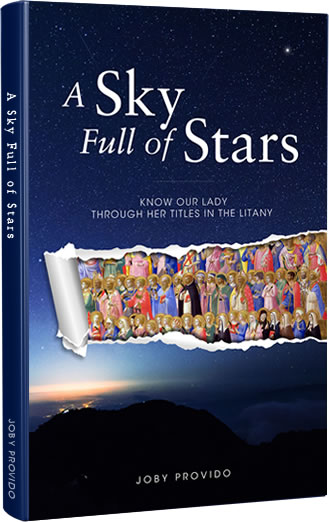
A Sky Full of Stars
Know Our Lady through her Titles in the Litany
The Church helps us understand who Mary is by honoring her with different titles in the Litany of the Blessed Virgin Mary. Unfortunately, over time and difference of culture, we might not grasp what it is the Church is ascribing to her and lose that opportinity to get to know her.
In A Sky Full of Stars, each title of the Litany is explained so we get know Mary more and fall in love with her all over again.
Get your copy now either in Hardbound, Paperback, or Kindle
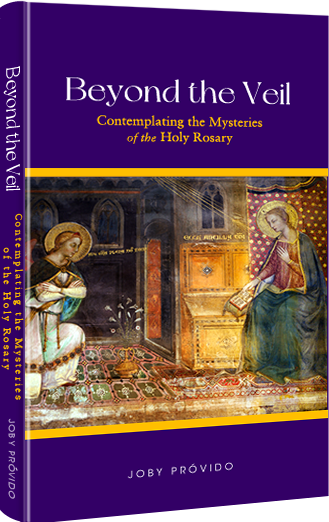
Beyond the Veil
Contemplating the Mysteries of the Holy Rosary
Prayer giants like Pope St. John Paul II, Pope Paul VI, Bl. Archbishop Fulton Sheen, and Bishop Robert Baron advocate that we contemplate on the mysteries of the rosary while we say the vocal prayers. Unfortunately, there are not many books that teach us how to do this. Beyond the Veil comes to the rescue by suggesting seven ways we can pray the rosary the way it was intended.
The larger part of the book offers mental images for each of the mysteries we can use in our contemplation, for how can we imagine the scenes in the rosary if we don't know about them?
Get your copy now either in Hardbound, Paperback, or Kindle
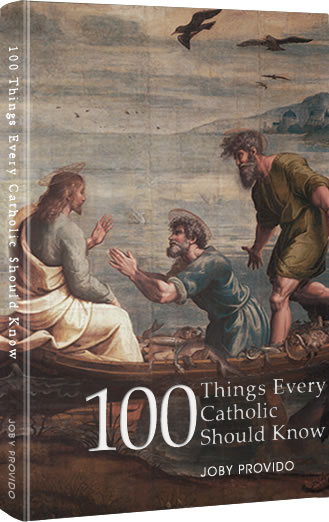
100 Things Every Catholic Should Know
Whether or not you are new to the Catholic Church, or struggling, or lapsed, or dynamically involved, this book will enlighten you with the essentials of the Faith that have been handed down to us by the apostles.
Each of the 100 topics is easy to read and distilled into bite-sized portions. Through cross-referencing, the book also shows how the topics are interrelated. Those who are new to the Faith will find this book an edifying handy reference, and those who have simply forgotten will find it a great review material that might spark a new love for God and religion.
Get your copy now either in Hardbound, Paperback, or Kindle
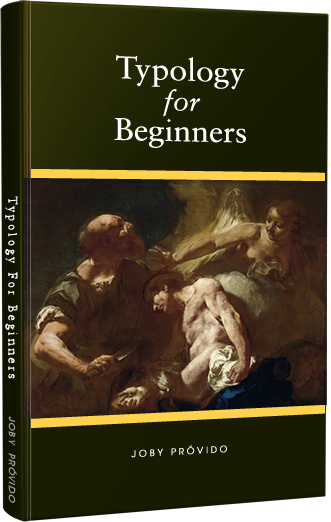
Typology for Beginners
A Catholic Perspective on understanding the New Testament through the Old Testament
First-century Jews converted to Christianity in droves because of the way the New Testament was written to show Jesus was the Messiah promised by the Old Testament. We also learn about how Mary is the New Eve and the Ark of the Covenant in the way the writers portray her.
Through typology, the patterns that connect the Old and New Testaments make the Bible stories more accessible so that one becomes excited to read Sacred Scripture again.
Get your copy now either in Hardbound, Paperback, or Kindle


